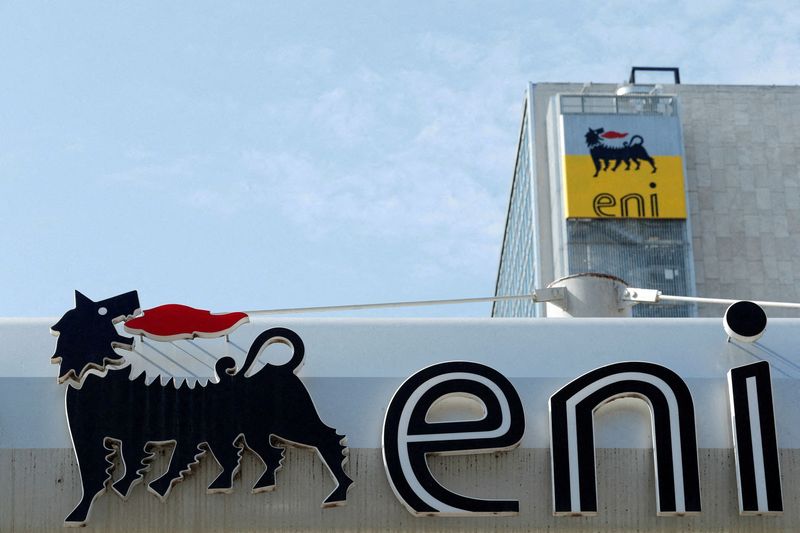By Giuseppe Fonte
ROME (Reuters) -Italians could be encouraged to turn down the heating in winter and spend less time in the shower as reduced gas flows from Russia focus minds on how to cut energy consumption.
The ideas surfaced after Italian energy group Eni said it would receive about a third less gas from Russia's Gazprom (MCX:GAZP) on Monday compared to the average volumes supplied over the last few days.
The Nord Stream 1 pipeline which transports gas from Russia to Germany has entered a planned maintenance shutdown, prompting concerns about gas supplies to Europe if the outage is extended.
Italy is trying to wean itself off its reliance on Russian gas following the invasion of Ukraine in February and build up reserves in time for winter when supplies could be strained.
"We must absolutely reach storage levels of 90% in the final months of the year," Ecological Transition Minister Roberto Cingolani told a conference on Monday.
"Over the next two years there will be a growing number of new suppliers that will allow us to be reasonably independent of Russian suppliers by the second half of 2024 but winter 2022 will be a little more delicate," he added.
Cingolani said Rome was working on a public information campaign aimed at persuading Italians to consume less electricity and gas, as well as to preserve water during the current summer drought.
"If we could lower the average temperature by 1 degree Celsius or reduce heating times by one hour, we would save 1.5 or 2 billion of cubic metres of gas per year," Cingolani said.
ENEA, a public agency in charge of developing environmentally sustainable energy, made a set of proposals which could potentially help Italy save 2.7 billion cubic metres of gas. Measures outlined at the conference included spending less time in the shower.

Russian gas giant Gazprom will supply approximately 21 million cubic meters on Monday while in the last few days Eni had received a daily volume of about 32 million cubic meters, Eni said in a note on its website.
Italy currently has filled abut 64% of its gas storage capacity, Stefano Venier, head of gas grid operator Snam told the conference.